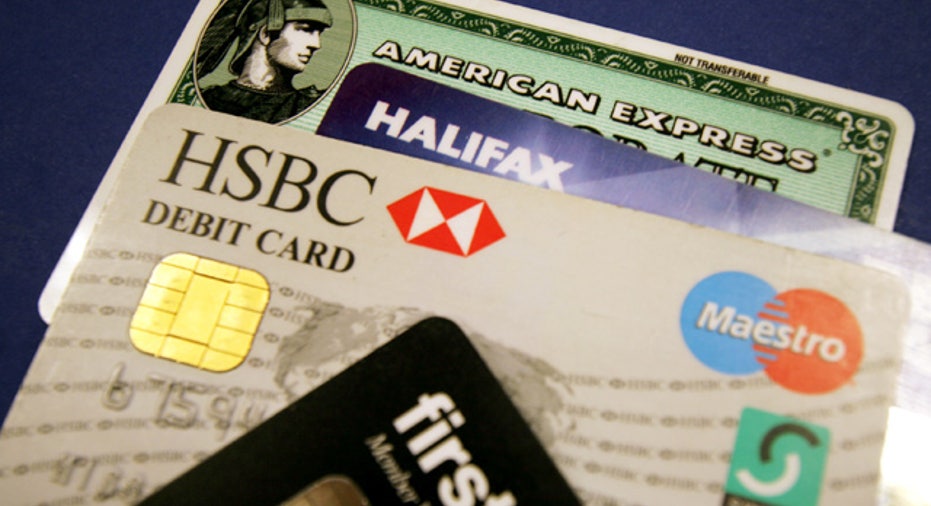Six Ways to Ditch Credit Card Debt

Are you facing monstrous credit card balances? Unfortunately, there is no quick-fix solution to get out of debt, despite what solicitors or infomercials might have you believe.
There are some tried-and-true methods for paying down debt. However, it's staying committed to your financial goals, not necessarily how you go about it that matters most, says Gail Cunningham, spokeswoman for the National Foundation for Credit Counseling, a nonprofit organization.
Consider the following debt reduction techniques and determine which method motivates you most.
No. 1: The "snowball" method. "When it comes to paying off debt, we need to be more concerned with behavior modification than math," says Dave Ramsey, author of "Total Money Makeover" and host of a nationally syndicated radio show, " The Dave Ramsey Show." His solution is the "debt snowball" method, which involves paying off debts from smallest to largest, regardless of interest rate. "Pay off the first debt quickly, and it gets you fired up to do it again and again," he says.
Ramsey believes the "snowball" method is for every type of consumer. "The only time that you should pay off a larger debt sooner than a smaller one is when you owe the IRS, or if you are trying to stop a foreclosure," he says. "Other than that, everyone should focus on paying the smallest to the largest debt."
No. 2: Pay the most expensive balance first. If you are someone who is really motivated by numbers, you will realize the account that is doing you the most damage is the one with the highest interest rate, and you'll take great pleasure in paying that down, says Cunningham.
"Also, if the account with the highest interest is utilizing more than 30% of that credit line, focus on paying that one off first to get it under that threshold," she says. Doing so will improve your credit score since debt utilization, which is how much you owe compared to how much available credit you have, is an important factor in determining your score. The lower your utilization is, the better.
No. 3: Do a balance transfer. Cunningham says if you're considering doing a balance transfer, you should first get out your calculator. "There are certainly fees associated with transfers, so you want to make sure the lower interest rate offsets the fees. You can be a savvy consumer and make that tool work for you if you're very disciplined," she says.
That means you'll need to fight the temptation to use that newly cleared card, while also committing to paying off the balance you moved over in a timely manner, says Deatra Riley, financial education manager at CredAbility, a nonprofit credit counseling and education service. "Balance transfers are a waste of time if you do it with no plan of action," she says.
Riley recommends dividing the total amount owed by the number of months for which the zero interest rate applies, and making sure you can fit that monthly payoff amount into your budget.
No. 4: Keep debt where it is. Ramsey warns that moving debt around is only putting a temporary patch on your financial wounds. "The danger of moving credit card balances is that it's easy to start thinking you've actually done something to address the problem," he says. After all, you still have all that debt to pay off.
According to Riley, it's also important to keep in mind, especially if you plan to apply for any type of loan in the near future, that opening a new credit account will negatively affect your credit score for the short term.
No. 5: Grow your emergency fund. In its 2011 Consumer Financial Literacy Survey, the NFCC discovered that 33% of Americans have zero dollars in nonretirement savings. "They are one flat tire away from financial distress," says Cunningham.
When an emergency does happen, the cost may mean adding to the current debt load, borrowing from friends and family or forgoing other expenses.
Cunningham advises against wiping out savings to pay down debt, especially if you're not confident about the security of your job. Instead, she suggests keeping a "rainy-day cushion of at least one month's income" in an emergency fund.
No. 6: Use some savings for debt reduction. If your debt is overwhelming, you might decide to dip into your savings. Just don't bleed it completely dry, says Ramsey. "I always recommend having a $1,000 emergency fund while you get out of debt. Emergencies will happen." You don't want to put yourself in a position where you have to borrow money for the unexpected, he says.
Once you are debt-free, says Ramsey, then you can shift your focus onto building an emergency fund that will cover three to six months' worth of expenses.



















